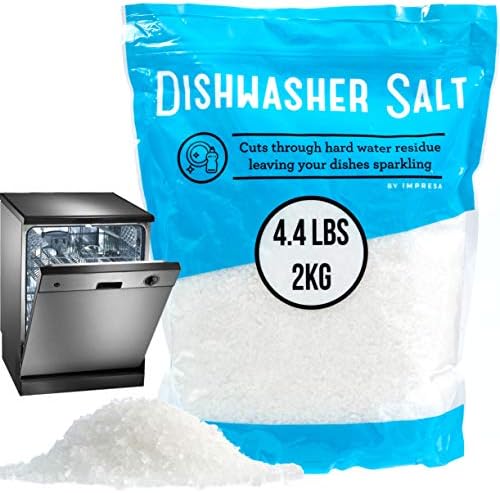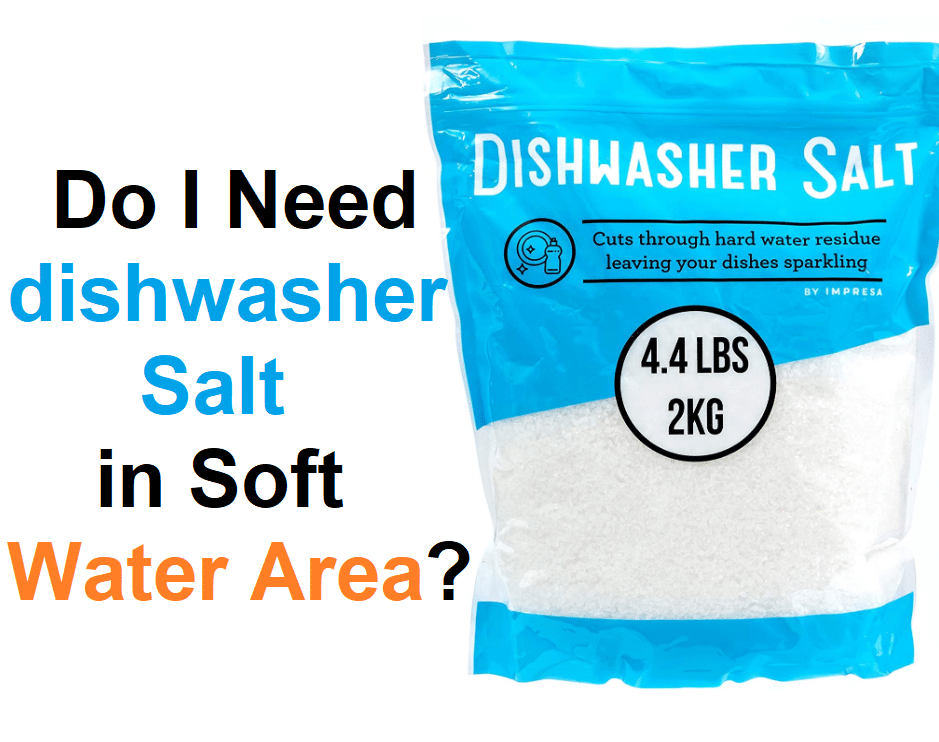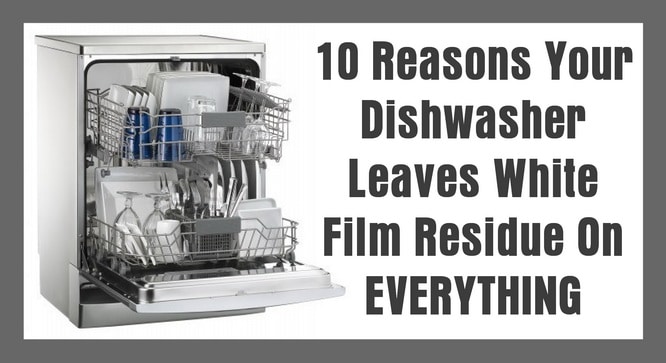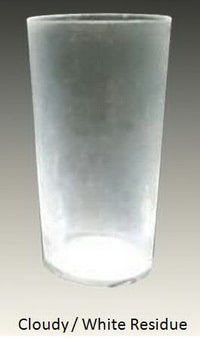8182018 If the water softener is replacing a lot of hard minerals with ion these sodium ions can be high. The first is undissolved detergent.

Washing Up The Dishes 0 Waste Life
A rinse aid is simply an agent that helps to reduce the surface tension of water so that your dishes can dry faster without leaving water spots.

Salt residue on dishes. Due to their nature the surfactants in soap will leave a residue if not thoroughly rinsed away. You would likely vomit and be quite uncomfortable but it. A simple rinse aid may.
Washing the dishes by hand will remove the film. After the dishes vehicles faucets and other such surfaces have been cleaned the sodium residue. The rubbing alcohol will quickly evaporate leaving behind a salty powder if the utensils are left too long in the solution.
Try hand-drying dishes or use a rinse aid such as Jet Dry. Dry the glass completely and check if the film is still there. These particles become debris or residue within the softener system.
If not see if it dissolves in. 4172020 It contains potassium and magnesium in heavy amounts due to which it can leave mineral deposits on the dishes as you wash them and hence they come out cloudy. Was this article helpful.
3192021 If your dishes come out covered in water spots the water from the dishwasher may be staying on your dishes too long. If you can wipe off the white coating with a finger it is probably salt residue. Also know why are my dishes coming out of the dishwasher Chalky.
Soak the utensils in the salt solution for 10 minutes before wiping down. Finish Dishwasher Salt helps soften water directly reducing the amount of spots and watermarks on your glassware that can be caused by hard water. As such a lot of sodium ion is put into your water in order to remove the minerals.
3312011 If the film left behind by your dishwasher feels gritty there are two possible culprits. Placing evaporated or solar salt in the softening system and. If you are putting the salt in the correct reservoir and screwing the cap back on tightly it will not be caused by too much salt unless there is a fault.
If the softener was. One is soap residue and the other is mineral residue. The cause of the problem could be a combination of salt or limescale.
562010 It is most likely one of 3 things. If you cannot wipe the coating off but you can remove it with a small amount of vinegar it is probably limescale. This issue is most common with powdered detergent and dry detergent cakes.
Also experiment with the best position in the rack so that the rinse water drains well. To check this soak your dishes in white vinegar for 5 minutes and if the dishes come clean afterwards then hard water is the real culprit. To be sure you could drink a bottle of dish soap.
Rock salt has many particles that cannot dissolve in water. 952020 A mix of one part salt to four parts rubbing alcohol can work to eat away at oily residue on smaller items such as utensils. Take a glass with film on it and run it under the faucet with water and use your thumb to rub the film.
More likely is that the tap water is slightly salty eg. Because it is desalinated or from a salt-based water softener and as it air-dries on dishes the salt becomes more concentrated. If you have hard water the water spots usually turn in to white residue when the dishes dry.
To determine which film it is can be determined with a simple test. Scrape off some of this residue see if it dissolves in cold water and tastes of salt. This film can be caused by two things.
352015 The pH balance of the salt residue is high opposite dirt and grim and thats why normal cleaners usually smear and turn the salt residue into a big mess. 10112016 Salt mushing is what happens when dissolved salt recrystallizes and forms a mushy sediment at the bottom of the brine tank. Salt mushing may keep your water softener from properly regenerating.
The best way to fix this problem is to completely drain the system of water and replace the salt. If you added the salt incorrectly or damaged your softener in the process it may be salt residue. 512020 Finish Dishwasher Salt This white residue could be a result of heavy deposits of limescale being left on glasses.
The normal cleaners are raising the pH level when the salt actually needs to be neutralized. There are also dishwasher cleaning products for limescale removal and some people use salt in with the rinse aid to soften the water and keep the problem at bay Get Your Water Heater Flushed Out Water heaters need yearly maintenance anyway so if you have limescale running through your plumbing pipes get your water heater flushed out. Standard dish soap would not leave enough behind to be harmful.

Remove Hard Water Build Up From Dishes Without Scrubbing The Craft Patch

Remove Hard Water Build Up From Dishes Without Scrubbing The Craft Patch
Astonish All In 1 42 Pack Dishwasher Added Salt Rinse Aid Lemon Tablets Ebay

Amazon Com 4 4 Lb Dishwasher Salt Water Softener Salt Compatible With Bosch Miele Whirlpool Thermador And More 2 Kg Home Kitchen

Do I Need Dishwasher Salt In Soft Water Area No Here S Why Dishwashing Pro

What Is Dishwasher Salt The Secret To Spotless Dishes Realtor Com

10 Reasons Your Dishwasher Leaves White Film On Glasses And Dishes

Remove Hard Water Stains With This Diy Epsom Salt Scrub Cleaning Hacks Diy Cleaning Products Hard Water Stain Remover

Thrifty And Chic Diy Projects And Home Decor

10 Reasons Your Dishwasher Leaves White Film On Glasses And Dishes

Cleaning Uggs From Salt Stains Cold Water With A Little Bit Of Dish Soap Soft Tooth Brush Cloth Gently Brush The Sta Cleaning Uggs Cleaning Ugg Boots Uggs
/02-d4abbeba65504b1da0a117b8fdf5acd1.jpg)
How To Prevent Cloudy Glassware After Dishwashing

Homemade Dishwasher Detergent Soap And A Natural Rinse Agent
